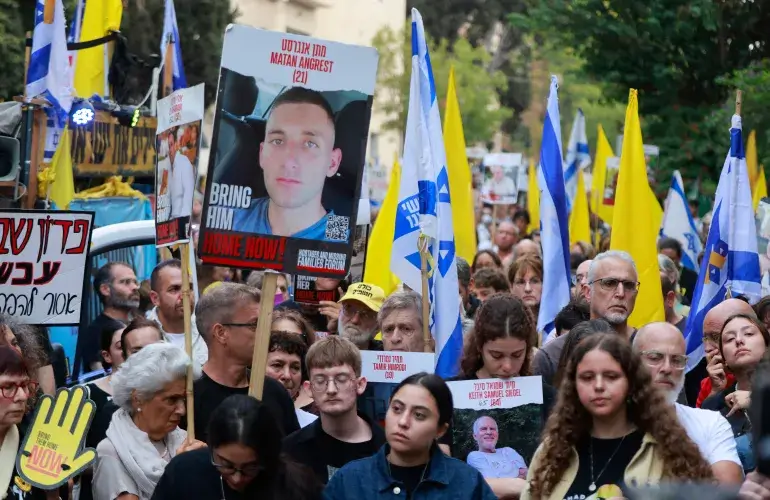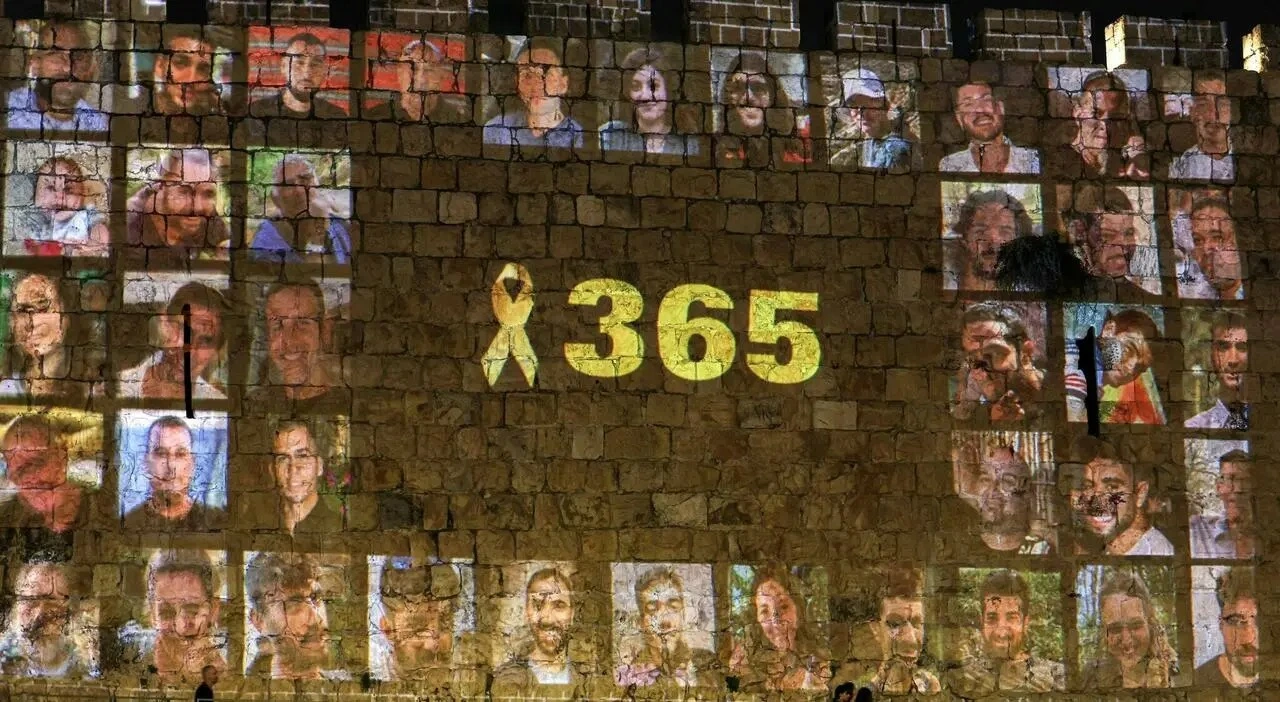As the war continues to impact the area, Israel commemorated the first anniversary of the October 7 assault, which started the ongoing Israel-Hamas conflict, with festivities and rallies. With approximately 1,200 Israelis killed and about 250 taken hostage, the attack spearheaded by Hamas left a lasting mark on the Middle East.
Memorial Ceremonies Across Israel
At 06:29 a.m., the exact time when Hamas militants launched their assault, rockets rained down on Israel, marking the beginning of what would become one of the deadliest days in Israeli history. In memory of the attack, families of hostages and victims held vigils and protests across the country. The southern region of Israel and Jerusalem became focal points for commemorations.
About 300 individuals, many of them hostage family members, gathered in front of Prime Minister Benjamin Netanyahu’s house in a moving show of solidarity. A minute of silence was observed by them, holding up pictures of their loved ones, in remembrance of the 1,200 people who died in the attack. The crowd’s general sentiment was captured by hostage-relative Yuval Baron, who said, “We’re still stuck in October 7th, 2023, in one unending day of terror, fear, and anger.” He urged further efforts to release the captives..
At Reim, the site of the Nova music festival where over 360 people were killed, President Isaac Herzog presided over a ceremony to honor the victims. “We will remember always who kidnapped, who murdered, who raped, who slaughtered,” Herzog said, emphasizing the need for unity in these turbulent times.

Increased Security Measures
Security forces across Israel were on high alert in anticipation of potential Palestinian attacks on the anniversary. Several checkpoints in the West Bank were shut down, and Palestinians with entry permits were informed via mobile notifications that they would not be allowed entry into Israel on Monday.
Meanwhile, the Israeli military claimed to have foiled a planned Hamas rocket attack in Gaza. Despite the country’s efforts to maintain control, the conflict has continued to escalate, causing widespread devastation in Gaza and beyond.
Global Protests and Response
Vigils and protests extended beyond Israel, with many demonstrations expected globally to oppose Israel’s offensive in Gaza. Palestinian health authorities have reported nearly 42,000 deaths in Gaza, with a large portion of the population displaced. The destruction in Gaza has sparked international outrage, leading to calls for a ceasefire and increased humanitarian aid for those affected by the conflict.
Shifting Focus to Lebanon
In addition to the ongoing conflict with Hamas in Gaza, Israel’s attention has increasingly shifted to the north, where tensions with Hezbollah have escalated. Since October 8, Hezbollah, the Iranian-backed group in Lebanon, has launched missiles into Israel in support of Hamas. What began as minor exchanges has now grown into full-scale bombardments of Hezbollah strongholds in Beirut and a ground offensive by Israeli forces into Lebanese border villages.
Israel’s military strategy has been to neutralize Hezbollah forces, allowing thousands of Israeli citizens who were evacuated from northern areas to return to their homes. However, the intensifying conflict has displaced more than a million people in southern Lebanon, further destabilizing the region.
Rising Regional Tensions
Recent Israeli military operations, including targeted assassinations of Hezbollah and Hamas leaders, have restored some sense of security for Israeli citizens. However, the operations have also provoked missile attacks from Iran, raising fears of a broader regional war. Iran’s most recent missile strike on October 1 has not yet prompted an Israeli response, though Israeli officials have vowed to retaliate.
Conclusion
As Israel marks the anniversary of October 7, the conflict shows no sign of abating. Both the humanitarian crisis in Gaza and the increasing hostilities with Hezbollah in Lebanon have placed the region on a knife-edge, with fears of a wider war growing by the day.

